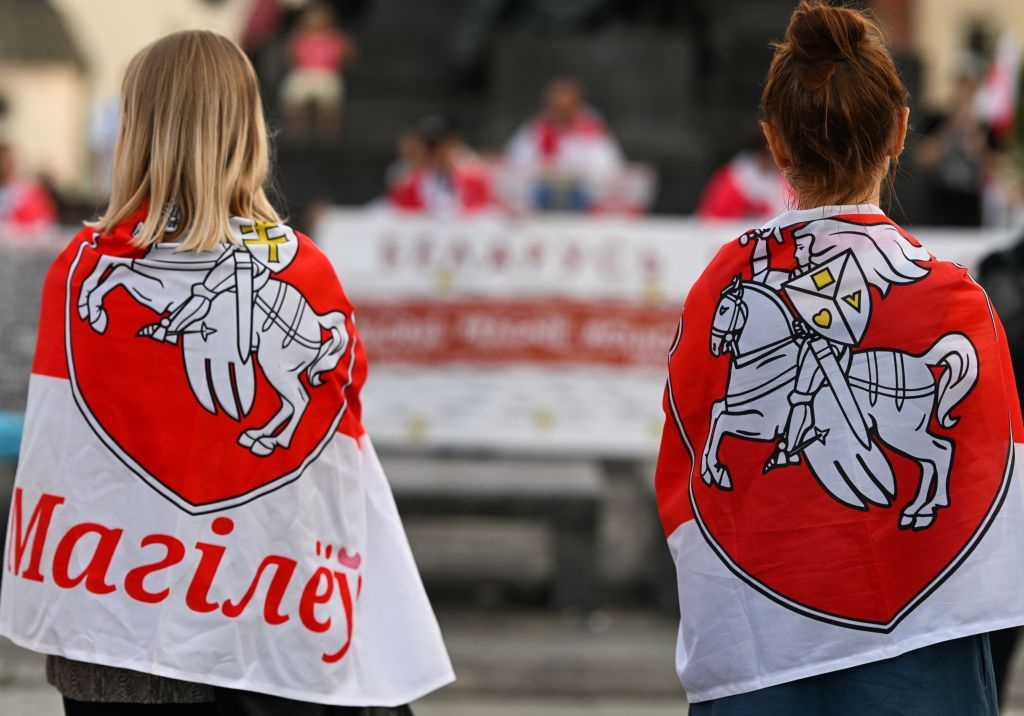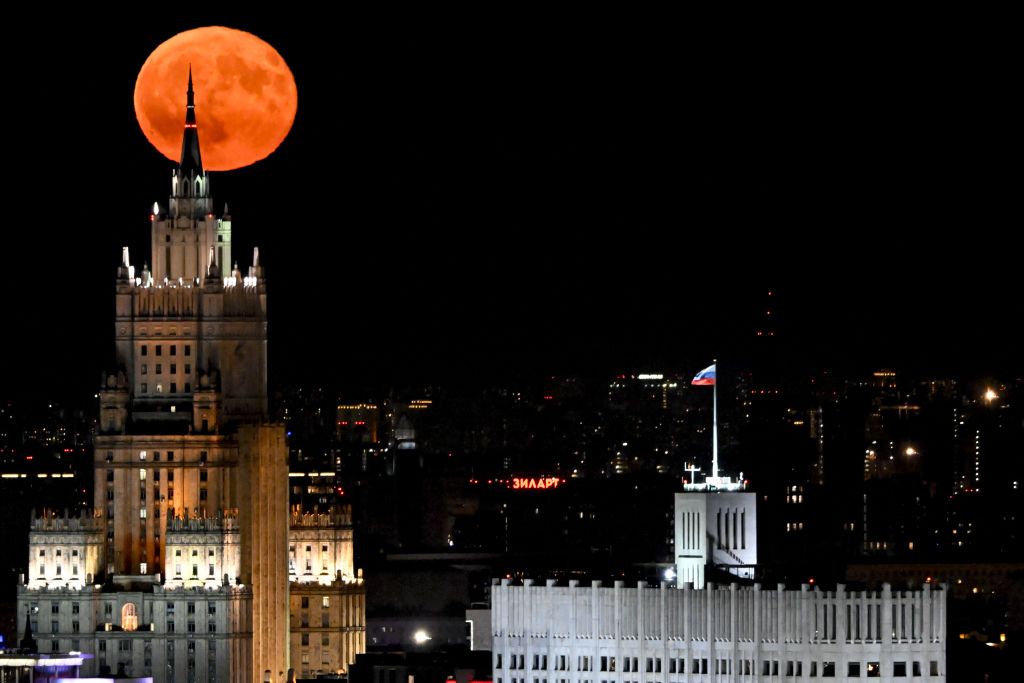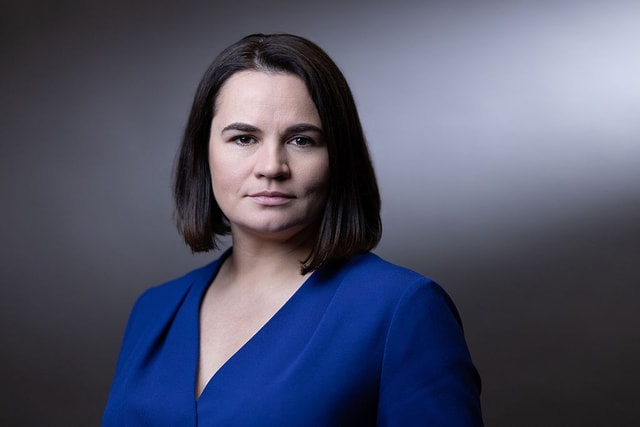Don’t get fooled by Lukashenko

Alexander Lukashenko (R) meets with U.S. presidential envoy Keith Kellogg (L) and members of the American delegation in Minsk, Belarus, on June 21, 2025. (X / Keith Kellogg)

Sviatlana Tsikhanouskaya
Leader of free Belarus
The man who enabled Russia’s invasion of Ukraine from Belarusian territory is now looking for a “deal” with the West.
Aleksandr Lukashenko — the self-proclaimed “president” who stole an election, crushed peaceful protests, and turned Belarus into Europe’s harshest dictatorship — suddenly wants better relations with the democratic world. How come?
Let’s go back for a moment: five years ago, Lukashenko lost the election. All credible counts — including those by Chatham House, Center for East European and International Studies (ZoiS), and an independent digital tally run by Belarusian IT specialists — showed that we had won in the first round.
But as dictators usually do, he refused to step down. He survived only by unleashing brutal repression, with Vladimir Putin’s help. In return, Putin gained military and political control over Belarus, turning our country into a launchpad for a full-scale invasion against Ukraine.
Since then, Lukashenko has ceased to be a sovereign leader. To most of the world, he is no longer a president — he is a proxy of the Kremlin. He serves Putin, not the Belarusian people.
His recent overtures toward the United States do not signal any real change of policy. Dictators don’t change — circumstances do. Sanctions are working. His budget deficit is growing. Yes, military contracts with Russia keep him afloat, but even Russian subsidies are no longer enough. Today, his power rests only on fear, repression, and Moscow’s support — while the war serves merely as a pretext for terror.
Lukashenko’s approach is deeply cynical and purely pragmatic. He is trying to get sanctions lifted, escape international isolation, and regain a sense of legitimacy.
It would be naive to believe that this plan is not coordinated with the Kremlin. Russia has every interest in helping its closest ally break isolation. Loosening sanctions on Belarus would, in practice, help Moscow — as we already see — by allowing Russia to bypass restrictions and import sanctioned goods through Belarus, strengthening its war machine.
Dictators like Putin and Lukashenko do not seek peace — they depend on war. Conflict sustains their regimes and justifies repression. And just as we see Putin trying to mislead U.S. President Donald Trump with peace talks, Lukashenko is attempting the very same game.
But the American side is not naive. They understand Lukashenko’s motives — and his vulnerabilities. The United States is trying to use this new backchannel for a humanitarian purpose, not a political reset.
U.S. Special Envoy for Belarus John Coale, nominated last week by President Trump, is an experienced negotiator who has worked closely with General Keith Kellogg before.
While Lukashenko’s propaganda tries to portray these contacts as a “new beginning” or international legitimization, President Trump and Special Envoy Coale have been clear and consistent: the purpose of this dialogue is humanitarian — to release prisoners and save lives.
President Trump has repeatedly called on Lukashenko to free all 1,300 hostages — and the word hostage is chosen precisely. It reflects the truth: these are innocent people, held in the torture chambers of Lukashenko’s regime, imprisoned not for crimes, but for their courage and beliefs.

Among them are hundreds imprisoned for their solidarity with Ukraine — including railway partisans who sabotaged Russian military transports, volunteers of Belarusian Hajun who collected intelligence on Russian forces, former fighters of the Kastus Kalinouski Regiment, and Belarusian officers and officials who supported me in 2020 and later opposed Russia’s war against Ukraine.
For standing with Ukraine, they received draconian sentences — 10, 15, even 20 years in prison.
There are also foreign citizens among the hostages. This is Lukashenka’s new tactic — to detain foreigners or employees of diplomatic missions as blackmail against their governments. Others, like Andrzej Poczobut, the well-known Belarusian-Polish journalist and recent Sakharov Prize laureate, remain behind bars as Lukashenko’s leverage against Warsaw.
President Trump and his Special Envoy Coale are working tirelessly to free all these hostages — many of them may not survive much longer in Belarusian prisons. It is a major humanitarian mission, difficult but noble, and it deserves both our respect and gratitude.
They have already released around 100 people, including my husband, who barely survived five years in solitary confinement. In response, the United States lifted sanctions on state-owned flag carrier Belavia.
Obviously, these releases are not an act of the dictator’s mercy, but the result of combined pressure — Europe’s sanctions and U.S. diplomatic engagement. And I would not suspect Lukashenko of humanity at all.
Sadly, for every person released, two new political hostages are taken. Those released are denied the right to remain in Belarus, and their families — still in Belarus — often face harassment and intimidation by the KGB.
Leader of Belarusian social democrats, Mikalai Statkevich, for instance, was freed under U.S. mediation, refused to leave his homeland, and for more than two months now, his wife can not find out his whereabouts.
Lukashenko’s prisons operate like revolving doors. That is why we insist that the release must mean real freedom — people must be allowed to stay in their country, and repressions must end. Otherwise, the cycle of terror will continue. For Lukashenko, human lives are bargaining chips, and as long as he feels he can trade them for concessions from the West, he will do it again and again.
We must remain firm and consistent in our approach to Lukashenko — and not fall into his traps. Any relaxation of sanctions must be strictly conditional and linked to real, verifiable improvements on the ground.
Let us remember: most Western sanctions were imposed not only for human rights abuses, but for Lukashenko’s direct complicity in Russia’s war against Ukraine. There can be no question of easing these measures while he continues to provide Putin with weapons, territory, and infrastructure for aggression. Today, over 280 Belarusian state enterprises work for the Russian war machine, and Lukashenko’s regime is directly involved in the deportation and indoctrination of Ukrainian children.
So our position is as follows: while the United States pursues a humanitarian track to free prisoners and may adjust certain human rights sanctions, the European Union’s sanctions — including those related to the war in Ukraine — must remain in full force.
They are essential to bring about systemic, irreversible change, to cut off the Russian war machine, and to pave the way for Belarus’s transition to democracy.
Here, I want to emphasize Ukraine’s crucial role.
Today, it is Ukraine that leads the way in shaping international policy toward Belarus and Lukashenko. I am certain that the Ukrainian people will never forgive Lukashenko for his complicity in Russia’s aggression — for Bucha, Irpin, and the suffering his regime enabled.
I commend President Volodymyr Zelensky, who has made it clear that Lukashenko will never again be a partner — that he is a criminal who must be held accountable.
We welcome the fact that President Zelensky speaks more frequently about Belarus and, just a few months ago in Munich, affirmed the European future of Belarus — the same goal for which the Belarusian democratic forces are fighting. He said, rightly, that the eastern border of Europe lies along the eastern border of Belarus.
I am grateful that Ukraine’s leadership distinguishes between Lukashenko’s regime and the Belarusian people, who stand with Ukraine and condemn the war. The fact that the Belarusian army did not enter this war on Russia’s side is not Lukashenko’s merit — it is the merit of Belarusian society.
For most Belarusians, Lukashenko is a lame duck. His time is running out; even within his inner circle, whispers of transition are growing louder. Change is inevitable — and our task is to make sure that this change is pro-European and pro-democratic.
I am convinced that this change will be linked to Ukraine’s victory. A strong Ukraine means a weakened Russia — and this will open the window of opportunity for Belarusians to reclaim our country, hijacked by Putin and Lukashenko.
As I said in my recent address to the European Parliament, Ukraine’s victory will open the path for all of us — Armenia, Georgia, Moldova, and Belarus.
That is why, at every forum and every meeting, I repeat: give Ukraine everything it needs to win this war. Keep pressure on Lukashenko and Putin. Support Belarusian volunteers fighting for Ukraine — because the fates of our nations are intertwined.
We are determined to strengthen cooperation with President Zelensky, his office, Ukraine’s government, and parliament. This week, the Ostrozhki Forum is being held in Lviv and Kyiv to discuss the future of Belarus–Ukraine relations.
Let me assure you, the democratic forces of Belarus and the Belarusian people are true allies of Ukraine. We are fighting the same enemy — and for the same future: a free, peaceful, and European one.












